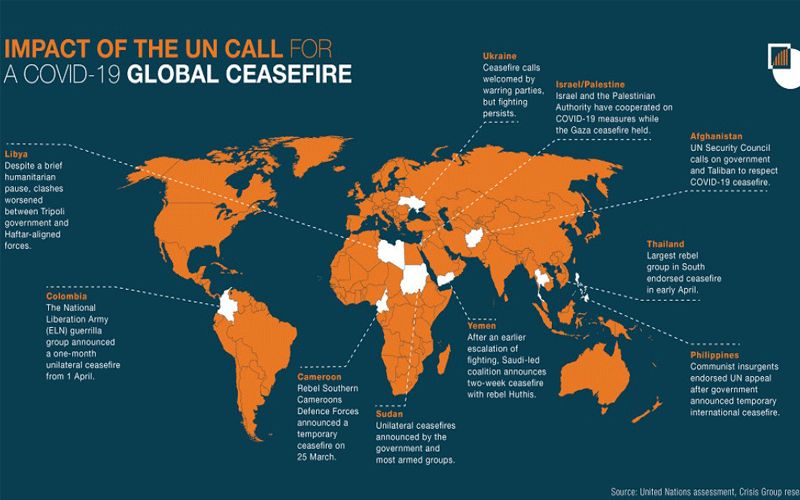Bamenda, 22 June, 2020 / 10:08 pm (ACI Africa).
Calls for ceasefire amid COVID-19 crisis in areas of armed conflicts by world leaders including the Holy Father and the United Nations Chief have been disregarded in Africa, various Church leaders have testified.
“Here the conflict is continuing,” the Archbishop of Bamenda in northwestern Cameroon, Archbishop Andrew Nkea has said in response to a survey by Aid to the Church in Need (ACN) International.
Referencing the protracted conflict in the English-speaking region of Cameroon, Archbishop Nkea said, in the June 22 ACN report, that while many leaders of those advocating for secession have expressed their understanding of what is at stake and agreed to sign a general ceasefire, these leaders “don’t actually have much influence on those fighting on the ground.”
The Central African nation with 80 percent French speakers and 20 percent English speakers has been experiencing armed conflicts since 2016 after Francophone judges and teachers were sent to the historically marginalized Anglophone region.
In neighboring Nigeria, despite the “principal danger” of famine that COVID-19 pandemic poses to the poorest of the people, “the country is still at the mercy of sporadic terrorist attacks by Boko Haram, especially in the northeast of the country,” Archbishop Ignatious Kaigama of Abuja Archdiocese told ACN.








